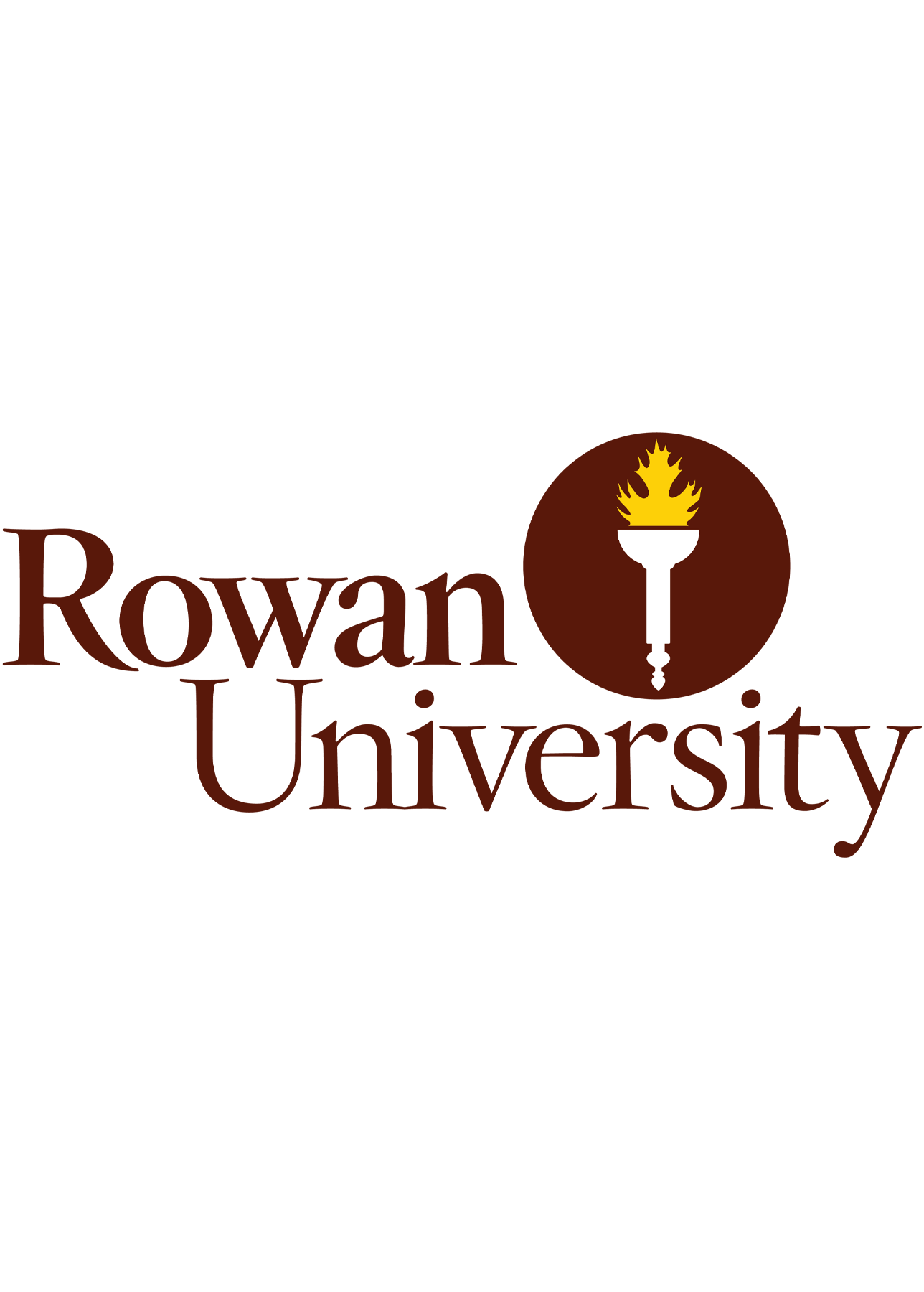For current teachers and lower-level administrators wanting to secure a higher-level administrative role, choosing the right master’s in education administration program is crucial. These programs are designed to provide you with the leadership and organizational skills necessary for high-stakes decision-making and effective management in educational settings. Graduates often step into roles like education administrator, with a median salary of $99,940; school principals, earning around $101,320; and, in some cases, school counselors, who make a median of $60,140.
Most programs can be completed in 18 months to three years, depending on whether you study part-time or full-time. With the average graduate tuition costing $19,749 for the 2020-2021 academic year, investing in this degree can significantly advance your career in this field, providing professional growth and financial benefits.
Why Trust Us
The Intelligent.com Higher Education Team is dedicated to providing students with independent, equitable school and program rankings and well-researched resources. Our expert-driven articles cover topics related to online colleges and programs, paying for school, and career outlooks. We use data from the U.S. Department of Education’s College Scorecard, the National Center for Education Statistics, and other reputable educational and professional organizations. Our academic advisory team reviews content and verifies accuracy throughout the year for the most current information. Partnerships do not influence rankings or editorial decisions.
- Analyzed over 2,000 national, accredited, and nonprofit colleges and universities
- 800+ rankings pages are reviewed and updated yearly
- Content is informed by reputable sources, surveys, and interviews with academic advisors and other experts
- Over 100 data points are reviewed for accuracy and quality throughout the year, including sources
How we rank schools
Our list features the best Master’s in Education Administration degree programs at top colleges nationwide. Each school featured is a nonprofit, accredited institution — either public or private — with a high standard of academic quality for post-secondary institutions.
We evaluated each school’s program on tuition costs, admission, retention and graduation rates, faculty, reputation, and the student resources provided for online students. We collected data from trusted sources like the National Center for Education Statistics, individual school and program websites, school admissions counselors, and other data sources. Then, we calculated the Intelligent Score on a scale of 0 to 100 based on the following criterion:
Academic Quality:
- Admission rate versus enrollment rate
- Retention rate of students who return after year one
- Accreditation status (regional and programmatic)
- Nonprofit status, both private and public institutions
Graduation Rate
- Overall graduation rate
- Total number of currently enrolled students, including diversity metrics
- Student-to-faculty ratio
Cost and ROI
- In-state and out-of-state per-credit tuition rates and fees
- Required credits to graduate
- Earning potential after graduation
- Availability of federal student loans, scholarships, and other financial aid options
Student Resources
- Available student services for online-only and hybrid programs
- On-campus amenities like tutoring centers and the number of libraries
Read more about our ranking methodology.
Best 24 Accredited Master’s in Education Administration Programs
FiltersInstitution Type
Status
- Intelligent Score
- Alphabetically By University Name
- Acceptance Rate
- Enrollment
- In-state Graduate Tuition
- Out-of-state Graduate Tuition
- In-state Undergraduate Tuition
- Out-of-state Undergraduate Tuition

Vanderbilt University
Intelligent Score: 99.21In-state: $52,781
Out-of-state: $52,781
In-state: $50,082
Out-of-state: $50,082
SAT: 1470-1570
ACT: 33-35
$2,245
On-Campus
Southern Association of Colleges and Schools Commission on Colleges
36

University of Southern California
Intelligent Score: 98.02In-state: $59,260
Out-of-state: $59,260
In-state: $47,880
Out-of-state: $47,880
SAT: 1340-1530
ACT: 30-34
$2,354
On-Campus
Western Association of Schools and Colleges
30

Loyola Marymount University
Intelligent Score: 97.70In-state: $51,820
Out-of-state: $51,820
In-state: $19,460
Out-of-state: $19,460
SAT: 1210-1390
ACT: 27-31
$1,542
On-Campus
WASC Senior College and University Commission
31

North Carolina State University
Intelligent Score: 97.45In-state: $6,535
Out-of-state: $26,654
In-state: $9,095
Out-of-state: $9,095
SAT: 1230-1410
ACT: 27-32
Resident: $525
Non-Resident: $1,635
On-Campus
Southern Association of Colleges and Schools Commission on Colleges
36

Northwestern University
Intelligent Score: 97.19In-state: $58,227
Out-of-state: $58,227
In-state: $56,067
Out-of-state: $56,067
SAT: 1430-1550
ACT: 33-35
$1,404
On-Campus
Higher Learning Commission
52

George Washington University
Intelligent Score: 93.84In-state: $55,961
Out-of-state: $55,961
In-state: $31,770
Out-of-state: $31,770
SAT: 1270-1450
ACT: 30-33
$950
On-Campus, Online
Council for Accreditation of Educator Preparation
30

The Universities at Shady Grove
Intelligent Score: 92.97In-state: $8,824
Out-of-state: $34,936
In-state: $13,158
Out-of-state: $13,158
SAT: 1270-1480
ACT: 30-34
Resident: $828
Non-Resident: $1,805
On-Campus
National Council for Accreditation of Teacher Education
30

Fordham University
Intelligent Score: 92.81In-state: $54,730
Out-of-state: $54,730
In-state: $23,112
Out-of-state: $23,112
SAT: 1230-1410
ACT: 27-32
$1,638
On-Campus, Online
Higher Learning Commission
30

Western Washington University
Intelligent Score: 92.08In-state: $7,377
Out-of-state: $24,135
In-state: $11,061
Out-of-state: $11,061
SAT: 1080-1270
ACT: 22-28
Resident: $393
Non-Resident: $843
On-Campus
Council for Higher Education Accreditation
52

Saint Joseph's University
Intelligent Score: 91.29In-state: $47,740
Out-of-state: $47,740
In-state: $17,802
Out-of-state: $17,802
SAT: 1100-1290
ACT: 23-29
$845
On-Campus, Online
Council for Higher Education Accreditation
30

The Ohio State University
Intelligent Score: 91.14In-state: $10,615
Out-of-state: $32,599
In-state: $11,560
Out-of-state: $11,560
SAT: 1210-1430
ACT: 26-32
$896
On-Campus
Higher Learning Commission
30

Seattle University
Intelligent Score: 90.73In-state: $47,565
Out-of-state: $47,565
In-state: $13,500
Out-of-state: $13,500
SAT: 1130-1330
ACT: 24-30
$735
On-Campus
Northwest Commission on Colleges and Universities
37-46

National University
Intelligent Score: 89.19In-state: $13,320
Out-of-state: $13,320
In-state: $15,480
Out-of-state: $15,480
SAT: N/A
ACT: N/A
$442
On-Campus, Online
WASC Senior College and University Commission
45

Rowan University
Intelligent Score: 87.40In-state: $9,573
Out-of-state: $18,605
In-state: $12,879
Out-of-state: $12,879
SAT: 1040-1250
ACT: 20-28
$798
On-Campus
Middle States Commission on Higher Education
36

Michigan State University
Intelligent Score: 87.26In-state: $15,555
Out-of-state: $40,384
In-state: $18,858
Out-of-state: $18,858
SAT: 1100-1300
ACT: 23-29
$867
On-Campus, Hybrid
Higher Learning Commission
30

University of Louisville
Intelligent Score: 86.82In-state: $11,966
Out-of-state: $28,312
In-state: $13,260
Out-of-state: $13,260
SAT: 1050-1270
ACT: 21-28
Resident: $593
Non-Resident: $1,204
On-Campus, Online
Southern Association of Colleges and Schools Commission on Colleges
30

Saint Cloud State University
Intelligent Score: 86.24In-state: $7,505
Out-of-state: $15,921
In-state: $7,607
Out-of-state: $7,607
SAT: 1000-1250
ACT: 18-24
$596 - $656
On-Campus, Hybrid
National Council for Accreditation of Teacher Education
30-33

Boston University
Intelligent Score: 86.06In-state: $56,854
Out-of-state: $56,854
In-state: $56,854
Out-of-state: $56,854
SAT: 1310-1500
ACT: 30-34
$2,083
On-Campus, Online
New England Commission of Higher Education
36
How to Choose a Master’s in Education Administration Program
Choose your area of study
When choosing your area of study for this degree, you’ll want to consider this carefully, as it will help you narrow your focus to programs that support your interests and professional goals. Whether you’re aiming to become a school principal or are interested in roles within colleges or universities, there’s a specialization within this field to suit your educational needs. These options vary depending on the institution but may include educational leadership, higher education administration, or instructional technology.
Research schools and program
Once you’ve chosen a specialization, thorough research into potential schools and programs is essential. Consider using the following questions to guide your research:
- How does the curriculum align with my career goals?
- What are the faculty’s qualifications, and what’s their experience like?
- What practical experiences or internships does the program offer?
- What are the program’s graduation rates and alumni success stories?
Most programs make this information readily available on their website, but you can typically find more details and specific answers to these questions by attending an information session or speaking with admissions counselors.
Prepare for tests and applications
With your shortlist of schools in hand, it’s time to begin preparing for tests and applications. Setting aside ample time to write a compelling personal statement that illustrates your ambitions and readiness for graduate-level study is crucial. Start gathering materials early — including transcripts and letters of recommendation — to avoid any last-minute stress. If your prospective programs require GRE scores, consider enrolling in a test prep program to improve your performance.
Select your program
If you submit multiple applications, you may receive multiple acceptance letters. This is a great time to revisit your initial research criteria, evaluate what’s most important to you, and compare each program’s total cost of attendance.
Programs with financial aid opportunities – especially those that include scholarships, grants, or assistantships – may take priority here if they meet your other academic criteria. It’s essential to weigh these factors against your career goals to make an informed decision that aligns with your professional objectives and financial situation – ensuring you select a program that offers the best value and support.
Determine how you’ll pay for your degree
To best finance your graduate degree, you must create a comprehensive financial aid plan utilizing all available resources. Seek out scholarships and grants first, as these do not need to be repaid and can significantly reduce out-of-pocket expenses. Then, consider assistantships, which frequently offer tuition waivers or stipends alongside resume-boosting experience. If your degree aligns with your current job, explore whether your employer provides tuition assistance – which often covers a portion of your tuition in exchange for agreeing to continue working for the company post-graduation.
While federal loans are often an accessible option for most students, they should be considered only to bridge financial gaps. It’s important to remember that every dollar taken out on a loan will eventually have to be repaid with interest.
What Can You Expect From a Master’s in Education Administration Program?
Schools require motivated professionals with exceptional organizational skills to take on administrative roles, which is precisely what a master’s in education administration will prepare you for. As a student, you’ll delve into the intricacies of educational leadership, policy analysis, and school finance, acquiring the skills to manage and lead educational institutions effectively.
The most innovative curriculums combine theoretical coursework with practical, real-world experiences, preparing graduates for the challenges of educational administration. Some programs may necessitate the completion of a thesis to graduate, offering students the opportunity to explore an educational issue they’re most interested in in depth.
In most situations, these programs can be completed within two to three years, depending on whether you enroll full-time or part-time.
Potential courses you’ll take in a master’s in education administration program
- Educational Leadership: This course introduces students to the foundational principles of leading and managing educational institutions. Learners explore leadership theories, effective communication strategies, and the management of resources, aiming to cultivate skills for effective leadership in academic settings.
- School Finance and Budgeting: Focused on the financial aspects of running educational institutions, this course covers budget preparation, allocation, and management. Students learn about educational funding sources, financial planning, and strategies for managing fiscal resources efficiently to support academic goals and improvements.
- Curriculum Design: This course delves into developing and assessing educational curricula. Participants study various curriculum models, integrating educational technologies and evaluation methods to ensure curricula meet academic standards and the needs of diverse student populations.
- Diversity and Inclusion in Education: This course examines strategies for creating inclusive educational environments that respect and respond to diversity among students, staff, and communities. Students explore theories of multicultural education, strategies for promoting equity, and the role of administrators in fostering an inclusive school culture.
Master’s in Education Administration Degree Frequently Asked Questions
How do I apply to a master's in education administration degree program?
The application process for each school may be slightly different, but many programs share similar criteria for admission, including the following:
- Bachelor’s degree from an accredited institution
- Official transcripts
- Letters of recommendation
- Statement of purpose
- Professional resume or CV
- GRE scores, if required
In addition to these criteria, some schools may request evidence of leadership experience to illustrate your potential in educational settings.
Given the variability in requirements, reaching out to an admissions counselor before applying can be helpful. They can provide advice and ensure your application is as strong as possible.
How much does a master's in education administration degree cost?
The average graduate tuition for the 2020-2021 academic year was $19,749. However, you’ll also want to consider additional expenses like books and supplies, room and board, and potentially technology fees if you opt for online classes. Financial aid can help mitigate these costs, but it’s essential to thoroughly research and budget for the total cost of your education beyond tuition.
How long does it take to earn a master's in education administration degree?
Earning this degree takes most full-time students two to three years, while part-time students often take three to four years — depending on the program’s total credit requirements. The number of required credits can vary significantly between programs, directly affecting your completion timeline. Generally speaking, programs requiring more credits will take longer to complete.

